MEDIA FOR CHANGE NETWORK
A call for civil disobedience against the privatisation of peasant seeds
Published
2 years agoon

For thousands of years, communities have nurtured and taken care of the crops and seeds that sustain us. Seeds are part of human history, work and knowledge systems, and our relationship with them is a never-ending conversation of care. This mutual nurturing has given rise to specific ways of cultivating, sharing, feeding and healing that are linked to community norms, responsibilities, obligations and rights.
People’s freedom to work with seeds hinges on the responsibility of communities who defend and maintain them, who care for them and enjoy the goods they provide. And this freedom is under threat.
Today there is a strong assault on people’s seeds. It comes from the drive to regulate, standardise and privatise seeds to expand markets for corporations. This is done through plant breeders’ rights and patent laws, as well as seed certification schemes, variety registers and marketing laws. Whatever the form, it is about legalising abuse, dispossession and devastation.
Today’s attack on seeds aims to put an end to peasant and Indigenous agriculture, an end to independent food production. Where peasant food sovereignty prevails, it is difficult to turn us into cheap and dependent labour, people without territory and without history. We face a coordinated political and technocratic crusade to impose uniform and rigid laws and regulations in favour of agroindustry. There is a determined effort to discredit people’s historical practices and ancestral indigenous peasant knowledge in order to make us dependent on corporations. Communities who have resisted have faced criminalisation, repression, and even imprisonment
Whether in Africa, Asia, Europe or the Americas, communities are fighting this pressure and we are united and mobilised to actively support them.
– In Benin, social movements have stopped the national parliament from discussing a law proposal to join UPOV, the Union for the Protection of New Plant Varieties. UPOV sets global standards for seed privatisation in favour of transnationals like Monsanto/Bayer, Syngenta and Corteva.
– In Guatemala, Indigenous peoples are in the streets demanding that their government’s proposed bill to adopt UPOV standards be scrapped as well. They call it “the Monsanto Law” and its rejection is part of an ongoing nationwide strike.
– In El Salvador, Guatemala and Honduras, groups are working together to prevent the adoption of a new ruling that would open the doors to genetically modified seeds in all three countries at once.
– In Thailand, civil society organisations are fighting hard against free trade agreements that impose UPOV instead of protecting the rights of farmers and other rural communities to maintain and use their local seeds.
-In Indonesia, farmers and civil society organisations continue to reject UPOV, which is being imposed through free trade negotiations and under pressure from countries like Japan. https://www.youtube.com/watch?v=J4pD_yZG1lc
-In the Philippines, farmers, scientists, concerned citizens and civil society organizations filed an environmental case to the Supreme Court to stop the commercial propagation of the genetically modified golden rice that is patented by Syngenta and other agrochemical corporations. Moreover, Filipino farmers are spearheading the fight for the recognition and strengthening of farmers’ rights to seeds and farmers’ seed system by forwarding seed commoning as an alternative to the UPOV-like laws in the country.
– Internationally, peasant and other social movements are also trying to get the UN Declaration on the Rights of Peasants and Other People Working in Rural Areas (UNDROP) translated into enforceable national laws.
We are determined to resist the dispossession of seeds from the hands of the people. We vigorously oppose registration, certification, patenting and marketing schemes, treaties, conventions, national and international laws and legal frameworks such as UPOV and other seed laws that promote the dispossession of the common goods and knowledge of our peoples.
We, as peoples in resistance, guardians of the seeds, will continue keeping, sharing and reproducing our seeds so our presence will germinate from our roots.
Signatories (Only organisation name displayed):
|
ABSDD/Slow Food |
Burkina Faso |
|
Acción Comunal |
Colombia |
|
ACDIC |
Cameroun |
|
AFSA |
Africa region |
|
Switzerland |
|
|
AgriMovement |
Lebanon |
|
AIFFRS |
India |
|
AKban Mague |
Colombia |
|
Alexander von Humboldt Foundation |
USA |
|
A lo Verde Escuela de Huertos Agroecologicos |
Ecuador |
|
Alliance pour le Développement Durable et pour l’Environnement |
Côte d’Ivoire |
|
Alliance for Sustainable and Holistic Agriculture |
India |
|
Amigos unidos con amor hojas de agricultura |
Colombia |
|
Anti-mining struggle committee |
India. |
|
ANAGAVEC |
Ecuador |
|
APBREBES |
Global/Switzerland |
|
Aravali Bachao |
India |
|
ARBA (Asociación para la recuperación del bosque autóctono) |
Spain |
|
Aseas |
Colombia |
|
Asoproorgànicos |
Colombia |
|
Association des Jeunes Agriculteurs de la Casamance |
Senegal |
|
Asociación de mujeres unidas por el desarrollo juanchopuquio encañada |
Peru |
|
Asociación Ecoaldea Aldeafeliz |
Colombia |
|
Asociacion Agroecologia y Fe |
Bolivia |
|
Asociación PROBIVIR |
Colombia |
|
Association pour la Défense de l’environnement et des Consommateurs (ADEC) |
Sénégal |
|
Asociación Shuar Sharup de cuidado y protección de semillas. |
Ecuador |
|
Association Sénégalaise des Producteurs de Semences Paysannes |
Senegal |
|
Association Tunisienne de Permaculture |
Tunisie |
|
Atukpamba y Red de Guardianes de Semillas de Ecuador |
Ecuador |
|
Audace Institut Afrique |
Côte d’Ivoire |
|
Bangladesh Agricultural Farm Labour Federation (BAFLF) |
Bangladesh |
|
Badabon Sangho |
Bangladesh |
|
Bendito Prashadam |
Colombia |
|
BioThai |
Thailand |
|
Biodiversity and Biosafety Association of Kenya |
Kenya |
|
Biodiversity Information Box |
Japan |
|
Biowatch South Africa |
South Africa |
|
Bhartiya Kisan Union (BKU) |
India |
|
Building Futures |
USA |
|
Cabildo Indígena de la cuenca del Río Guabas |
Colombia |
|
Cámara Verde de la Amazorinoquía |
Colombia |
|
Campesinos construyendo futuro |
Colombia |
|
Caritas Diocese of Malakal (CDoM) |
South Sudan |
|
Casa de semillas El Origen |
Colombia |
|
CCPA |
Sénégal |
|
CEIP |
Colombia |
|
CENDA |
Bolivia |
|
CERAI |
Spain |
|
Chile Mejor sin TLC |
Chile |
|
Chilis on Wheels |
United States |
|
C.netzero |
DRC |
|
City Mouse Garden |
United States |
|
COAG |
Spain |
|
Coati |
Colombia |
|
Cocapeutas Cooperatica Mujeres Medicina |
Peru |
|
Colectiva de mujeres Muralistas |
Colombia |
|
Colectivo Agroecológico Del Ecuador |
Ecuador |
|
Colectivo Cultura Saravita |
Colombia |
|
Colectivo por la Autonomía / Saberes Locales |
México |
|
Colombia Humana |
Colombia |
|
Colectivo Minga de soberanía alimentaria deChia |
Colombia |
|
Colectivo Semilla Negra |
México |
|
Colectivo Xiegua |
Colombia |
|
Comité de Derechos Humanos de la Sierra Norte de Veracruz |
México |
|
Comité Ouest Africain des semences Paysannes |
West Africa |
|
Commission of Charity and Social Actions – Caritas Dalat |
Viet Nam |
|
Comunidad Moneda Luna |
Colombia |
|
Comunidad Rural de la Buitrera |
Colombia |
|
comunidad kishuar Amazanga |
Ecuador |
|
Cooperativa Huacal |
México |
|
Coordinadora Ambiental Popular de Santa Rosa de Cabal |
Colombia |
|
COPAGEN |
West Africa |
|
CORDES MAELA RENAF |
Colombia |
|
Corpalabra |
Colombia |
|
CORPONIMA |
Colombia |
|
Corporación Aluna |
Colombia |
|
Corporación Creare Social |
Colombia |
|
Corporación Compromiso |
Colombia |
|
Corporacion Frutos de Utopía |
Colombia |
|
Corporación Síntesis |
Colombia |
|
Corredor biológico Montes del aguacate costa Rica |
Costa Rica |
|
CREATE |
INDIA |
|
CSRD |
India |
|
CSFdeepinnerMusic |
Netherlands |
|
Cuatro Rumbos Para Ti |
México |
|
CULTIVISA |
Colombia |
|
Cultivo Lo Nuestro |
Colombia |
|
Custodios de Semillas Ancestrales |
Colombia |
|
Darbar Sahitya Sansada |
India |
|
DESMI, A.C. |
México |
|
Ecofeminisarte |
Colombia |
|
Ecosinergia |
Colombia |
|
EdibleBristol |
UK |
|
El Jilote, SPG |
México |
|
Enda Pronat |
Senegal |
|
ESAL |
Colombia |
|
Escuela de Líderesas del Ecuador, y mujeres por el cambio, y defensa por la salud de los pueblos |
Ecuador |
|
Evobiota Consultancy Corporation |
Philippines |
|
Extinction Rebellion València |
España |
|
FAEB / Federation Agroecologique du Benin |
BENIN |
|
FIAN Indonesia |
Indonesia |
|
Finca Carrizales |
Colombia |
|
Frente de lucha Ambiental Delia Villalba |
Uruguay |
|
Friends of the Earth Nigeria |
Nigeria |
|
Fundacion Ambiental |
Colombia |
|
Fundacion Avá |
Argentina |
|
Fundación Julia Márquez |
Colombia |
|
Fundacion Biosistemas Integrados |
Uruguay |
|
Fundación la COSMOPOLITANA |
Colombia |
|
Fundacion Luna Arte |
Colombia |
|
Fundación Runakawsai |
Ecuador |
|
Gealac |
Peru |
|
Gender Justice |
Zambia |
|
Glesi |
Netherlands |
|
Good Food Community |
Philippines |
|
GRAIN |
International |
|
Grassroots klimaatboerderij |
Belgium |
|
Grassroots Trust |
Zambia |
|
Groupe d’action Écologique pour le développement intégral |
RDC |
|
Grow Local Colorado |
United States |
|
Grupo Allpa |
Ecuador |
|
Grupo Raquira Silvestre SAS |
Colombia |
|
Grupo Semillas |
Colombia |
|
HEKS Swiss Church Cooperation |
Switzerland |
|
Humaine |
Belgique |
|
Huerta comunitaria y Jardín Polinizador Con Ojos de Amor |
Colombia |
|
Huerta Marsella |
Bogota |
|
Huertas Swa Cho |
Colombia |
|
Huerto Agroecológico Atemajac |
México |
|
Incredible Edible Lambeth |
United Kingdom |
|
Indigenous Women and Girls Initiative |
Kenya |
|
Instituto Agroecológico Latinoamericano México |
México |
|
Instituto Humanitas |
Perú |
|
ISRA |
Sénégal |
|
JAL Diviso |
Colombia |
|
Joint Action for Water |
India |
|
Junta de agua vereda laureles |
Colombia |
|
JVE Côte d’Ivoire |
Côte d’Ivoire |
|
Kikandwa Environmental Association |
Uganda |
|
Laboratorio de Tierras |
Ecuador |
|
La Via Campesina East and Southern Africa |
Zimbabwe |
|
La Tucaneta |
Colombia |
|
Lapapaya |
Colombia |
|
La Cité Idéale |
Burkina Faso |
|
La Cuica Cósmica |
Ecuador |
|
La Savia |
Colombia |
|
Les amis de la Terre |
Togo |
|
Lideresa social |
Colombia |
|
Kansas interfaith Action |
USA |
|
Karnataka State Farmers Association (KRRS) |
India |
|
Malaysian Food Sovereignty Forum (FKMM) |
Malaysia |
|
MASIPAG |
Philippines |
|
Mesa Departamental de Diálogo y Concertación Agraría, Étnica y Popular de Nariño |
|
|
Methods Lab |
United States |
|
MINGAnet |
Colombia |
|
Mink’a Comunicación |
Argentina |
|
Mirachik |
Ecuador |
|
Mouvement d’Action Paysanne |
Belgium |
|
Mouvement des jeunes pour l’agriculture,l’agroécologique,et Agro pastorale (M.J.A.A.P) |
R.D.Congo |
|
Movement for Land and Agricultural Reform (MONLAR) |
Sri Lanka |
|
Movimiento Agroecológico de América Latina y el Caribe-MAELA |
Colombia |
|
Movimiento Campesino de Papaye |
Haïti |
|
Movimiento pacto histórico |
Colombia |
|
Movimiento Rural Cristiano |
España |
|
Mujeres que reverdecen |
Colombia |
|
Munsenga cooperative |
Zambia |
|
National Alliance for Agroecology The Gambia |
Gambia |
|
Malawi |
|
|
Ntaamba Hiinta Development Trust |
Zambia |
|
Ofraneh |
Honduras |
|
ojoVoz |
Mexico |
|
OK Seed Project |
Japan |
|
ONG YVEO |
Côte d’Ivoire |
|
Organisation des Ruraux pour une Agriculture Durable |
Benin |
|
Organización campesinos construyendo futuro (OCCF) |
Colombia |
|
Panitar Pally Unnyan Samiti |
India |
|
Paralegal Alliance Network |
Zambia |
|
Perkumpulan INISIATIF |
Indonesia |
|
Perkumpulan Kediri Bersama Rakyat (KIBAR) |
Indonesia |
|
Plataforma del País Valencià per un tren públic, social i sostenible que vertebre el territori i refrede el planeta |
Spain |
|
Primavera Zur |
Colombia |
|
Promotores ambientales del eje cafetero |
Colombia |
|
Proyecto agroecologico familiar y educativo ambiental sueño verde |
Colombia |
|
PTR Associates |
USA |
|
Punarchith |
India |
|
RADD |
Cameroun |
|
Radio Bénin |
Bénin |
|
RECHERCHE SANS FRONTIÈRES RSF |
RD Congo |
|
Red de Agricultores Urbanos Bogotá |
Colombia |
|
Red de consumo Responsable y consciente |
Colombia |
|
Red Colombiana de Agricultura Biológica de Antioquía |
Colombia |
|
Red de Custodia de Semillas Criollas y Nativas (CESTA) |
Colombia |
|
Red de foresteia análoga |
Ecuador |
|
Red de huertos agroecológicos de Cali |
Colombia |
|
Red de huertos urbanos |
Colombia |
|
Red de Resersvas / Resnatur |
Colombia |
|
Red de semillas criollas y nativas |
Uruguay |
|
Red de semillas libres de Colombia |
Colombia |
|
Red Distrital de Agricultores |
Colombia |
|
Red en defensa del Maiz |
México |
|
Red Kunagua |
Colombia |
|
Redmac |
Colombia |
|
REDMUNORCA |
Colombia |
|
Red de Pueblos Hermanos |
Colombia |
|
Red de jóvenes por la Agrobiodiversidad |
Perú |
|
Red Yuma |
Colombia |
|
Regional Schools and Colleges Permaculture |
Kenya |
|
Reservorio de Semillas Techotiva |
Colombia |
|
RESNATUR – Red de reservas |
Colombia |
|
Reseau JINUKUN |
Benin |
|
Resource Institute of Social Education |
India |
|
Salt Films |
India |
|
Sanwad |
India |
|
Save Earth Save Life Movement |
India |
|
Save Our Rice Campaign |
India |
|
Secretaria de educación de Bogotá |
Colombia |
|
Seed In A Box |
Lebanon |
|
Semillas de Nuestra Tierra |
México |
|
Semilla Nativa Colombia |
Colombia |
|
Semillas de Identidad – SWISSAID |
Colombia |
|
Serikat Buruh Migran Indonesia Kalbar |
Indonesia |
|
SERVIHUERTA |
Colombia |
|
Siyada network |
Arab région |
|
Société civile environnementale et agro-rurale du Congo |
RDC |
|
Sociedad libre y Neocampesina |
Colombia |
|
Soil if Cultures |
New Zealand |
|
South India Coordination Committee of Farmers Movements |
India |
|
SSN |
England |
|
Zambia and Africa |
|
|
Sukrutham |
India |
|
Synergie Nationale des Paysans et Riverains du Cameroun |
Cameroun |
|
Tanzania Alliance for Biodiversity |
Tanzania |
|
Tamizhaga Vivasayigal Sangam |
India |
|
The Ecocene Project |
India |
|
The Failing Farmer |
Tunisia |
|
The Hummingbird Foundation |
Kenya |
|
The Sixth Element School |
India |
|
The Utopian Seed Project |
USA |
|
Tierra Fertil |
Colombia |
|
Tinto to go |
Colombia |
|
Tlalixpan, sobre la faz de la tierra |
México |
|
Unillanos |
Colombia |
|
Unión de Organizaciones de la Sierra Juárez Oaxaca |
México |
|
Union Démocratique de l’Agriculture |
Maroc |
|
Unión de Organizaciones de la Sierra Juárez Oaxaca |
México |
|
Unión nacional de organizaciones regionales campesinas autónomas (UNORCA) |
Mexico |
|
Union Régionale des Associations Paysannes de DIOURBEL URAPD |
Senegal |
|
Uruguay Soberano |
Uruguay |
|
Waia Reserva Sagrada |
Colombia |
|
We Are the Solution |
Senegal |
|
West africa sea turtles conservation network |
Côte d’Ivoire |
|
WFDFFM |
Indonesia |
|
Wild Webcap |
Australia |
|
Women’s Alliance MN |
United States |
|
WMW/ATPA |
Tunisie |
|
xermoladas |
Spain |
|
Youth talk |
RDC |
|
Yuva Kaushal Vikas Mandal |
India |
|
Zambian Alliance for Agroecology and Biodiversity |
Zambia |
Related posts:
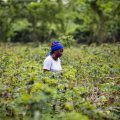
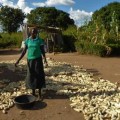 Gov’t to distribute seeds to 300,000 households in Acholi
Gov’t to distribute seeds to 300,000 households in Acholi
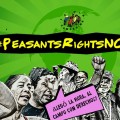 Finally UN General Assembly adopts Peasant Rights declaration
Finally UN General Assembly adopts Peasant Rights declaration
 Defending peasants’ rights to seeds and genetic resources, against the biopiracy
Defending peasants’ rights to seeds and genetic resources, against the biopiracy
 African governments are giving in to corporate pressure and undermining local seed systems – report
African governments are giving in to corporate pressure and undermining local seed systems – report
You may like
MEDIA FOR CHANGE NETWORK
REC25 & EXPO Ends with a call on Uganda to balance conservation and livelihood
Published
2 hours agoon
October 28, 2025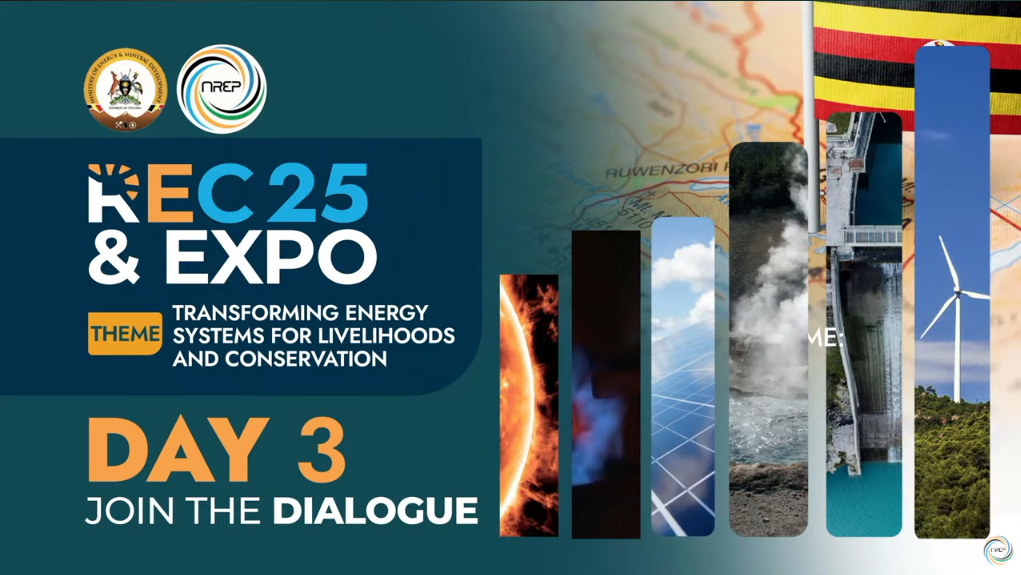
By: Witness Radio team
The week of 20th September 2025, Uganda hosted the Renewable Energy Conference 2025 to discuss and advance the clean energy agenda. Its purpose this time was to foster collaboration among the government, the private sector, and development partners to transform energy systems. Still, the development partners are calling on the government of Uganda to balance conservation and livelihoods.
The Renewable Energy Conference (REC) 2025, which focused on clean cooking to meet the national target of 50% access by 2030, provided an opportunity for representatives of the German and European Union embassies to underscore the importance of balancing environmental conservation and livelihoods.
The German Ambassador to Uganda, H.E. Matthias Schauer, stated that “transforming systems for livelihoods and conservation” are essential elements in the renewable energy sector.
“The theme, Transforming Energy Systems for Livelihoods and Conservation, I consider these two elements to be essential: livelihoods and conservation. Without energy, it is tough to establish livelihoods, but without conservation, you will be destroying them again sooner or later. They need to be well-balanced.” Matthias Schauer stated
He says, “At the same time, they strengthened local capacity, promoted innovative financing mechanisms to expand access to clean energy. Our partnership reflects a shared vision, unlocking Uganda’s potential, and that potential is huge. Fostering inclusive growth and ensuring that the benefits of energy transformation reach all communities, including remote and refugee hosting areas.” Matthias Schauer said.
He said that Germany’s goal is to advance access to affordable, reliable, sustainable, and clean energy for all, in line with Sustainable Development Goal No. 7, while fostering local ownership.
The European Ambassador to Uganda, H.E. Jan Sadek, on the other hand, emphasized that “the moment has come to move from dialogue to action. We are confident that Uganda will continue to lead by example, and Team Europe is ready to contribute to turning the insights from this conference into tangible impacts.” This urgent call to action should resonate with all stakeholders, highlighting the pressing need for change.
Jan also stated that, “The time for coordinated and accelerated investment in solutions to phase out the unsustainable use of firewood and charcoal is now. Together, we have a real opportunity to make a significant difference, and the EU is committed to contributing its part.” This commitment from the EU should reassure all stakeholders about the support they can expect.
While the Minister of Energy and Mineral Development, Ruth Nankabirwa Sentamu, stated that this year’s energy conference discussion has deepened their collaboration and collective understanding of what it truly means to transform energy systems from a livelihoods and conservation perspective.
As the Transition journey continues, Nankabirwa expressed confidence that through the performance reviews of the Ministry’s sustainable energy and extractive development programs, they have collectively assessed progress made under Development Plan 3 and have identified clear pathways for accelerated implementation of National Development Plan 4.
Related posts:

 New! The Eyes on a Just Energy Transition in Africa Program is now live on Witness Radio.
New! The Eyes on a Just Energy Transition in Africa Program is now live on Witness Radio.
 Oil activities in Murchison Falls National Park threaten Wildlife Conservation – AFIEGO study reveals.
Oil activities in Murchison Falls National Park threaten Wildlife Conservation – AFIEGO study reveals.
 UNCCD COP16: NGOs issue a stark warning and call for urgent actions to deal with the escalating threats of desertification, land degradation, and drought.
UNCCD COP16: NGOs issue a stark warning and call for urgent actions to deal with the escalating threats of desertification, land degradation, and drought.
 Europe issues sh46b loan to expand Uganda’s solar coverage
Europe issues sh46b loan to expand Uganda’s solar coverage
MEDIA FOR CHANGE NETWORK
StopEACOP Coalition warns TotalEnergies and CNOOC investors of escalating ‘financial and reputational’ Risks
Published
4 days agoon
October 24, 2025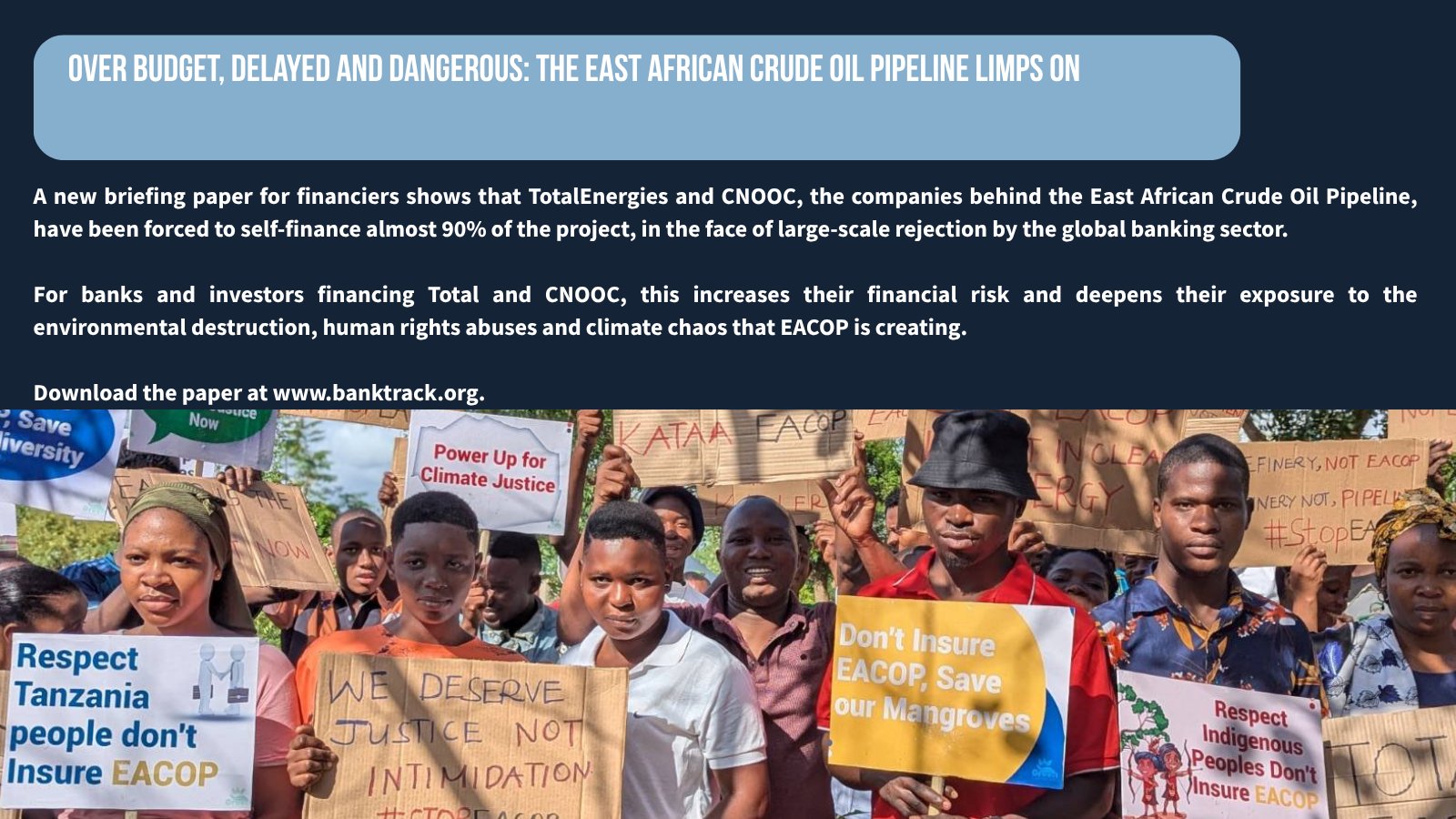
By Witness Radio Team
The StopEACOP Coalition has issued a warning to shareholders and bondholders of TotalEnergies and China National Offshore Oil Corporation (CNOOC), urging them to reconsider their funding of the East African Crude Oil Pipeline (EACOP) due to the companies’ growing self-financing of the project that exposes shareholders and bondholders to gross financial and reputational risks.
In a public statement released alongside its Finance Risk Briefing Update No. 6, the coalition revealed that the two energy giants have quietly decided to increase their financial commitments to the $5.6 billion pipeline, stepping in as lenders to their own project. This move reflects the collapse of external financing for EACOP amid widespread rejection by international banks and insurers due to the project’s environmental, human rights, and climate risks. These risks include environmental, human rights concerns, and climate-related issues.
According to EACOP Limited’s 2024 annual report, TotalEnergies and CNOOC have provided additional facilities through shareholder loans to fund what remains of the construction budget.
Initially projected to cost up to $3.5 billion and intended to be financed with 40% equity and 60% debt, the project’s cost has since increased to a whopping $5.6 billion. The two companies have already injected roughly $2.8 billion in equity and secured around $755 million in external loans, leaving a debt gap of approximately $2 billion. Currently, TotalEnergies and CNOOC are moving to cover that shortfall themselves, bringing their total funding to about $4.8 billion, or 86% of the project’s total cost, more than triple what they had initially planned to use.
“This is a shocking example of developers financing their own controversial project after being rejected by global financial institutions. It shows that the EACOP is no longer financially viable without corporate self-funding and that investors in these companies are now directly financing one of the most destructive fossil fuel projects in the world,” Reads part of the statement.
The coalition argues that by turning inward for financing, TotalEnergies and CNOOC have transferred financial, legal, and reputational risks to their own shareholders and bondholders.
“Now, to keep the project alive, TotalEnergies and CNOOC are turning inward, relying on their own balance sheets and, by extension, your capital. The situation increases your financial risk, deepens your exposure to the project’s growing controversy, and links your investment portfolios even more directly to the environmental destruction, human rights abuses, and climate chaos that EACOP represents,” the statement says.
“This means that institutional investors holding TotalEnergies or CNOOC securities are now directly linked to the project’s growing controversies, from land grabs and community displacement to the threat it poses to climate goals.”
EACOP is a 1,443-kilometer pipeline stretching from Uganda’s Lake Albert oilfields to the Tanzanian coast, which has faced heavy opposition since its inception. This opposition is due to threats to biodiversity and the environment, as well as to people’s displacement among others.
It is from this that the STOPEACOP coalition is calling for active engagement with TotalEnergies and CNOOC to jointly address human rights and environmental risks and identify a time-bound escalation strategy, where investors publicly set deadlines for the companies to act, backed by credible consequences such as voting against board members or divesting from the companies altogether.
“We are therefore calling upon the shareholders and bondholders of TotalEnergies and CNOOC to act with integrity and foresight, in line with their responsibilities under the UNGPs and the OECD Guidelines, to avoid contributing to severe human rights and environmental impacts associated with the operations of your portfolio companies,” reads the statement.
In the last three years, over 20 major banks and 23 insurers have publicly ruled out support for the EACOP project, citing misalignment with global climate targets and reputational concerns.
The Finance Risk Briefing shows that 43 banks have ruled out financing for the 1,443 km pipeline since the project began.
Governments and international organizations have also faced mounting pressure to intervene, as civil society movements in Uganda, Tanzania, and abroad intensify opposition to its implementation due to its adverse effects.
Related posts:

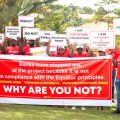 A Financial gap: Can China be stopped from financing the EACOP?
A Financial gap: Can China be stopped from financing the EACOP?
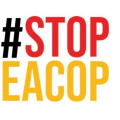 #StopEACOP campaign calls on Standard Bank to come clean about its funding of the East African Crude Oil Pipeline
#StopEACOP campaign calls on Standard Bank to come clean about its funding of the East African Crude Oil Pipeline
 Uganda: StopEACOP Campaign Condemns Standard Bank’s Decision to Fund EACOP
Uganda: StopEACOP Campaign Condemns Standard Bank’s Decision to Fund EACOP
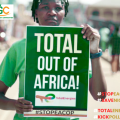 StopEACOP Movement calls for an end to harmful oil projects and demands a just transition.
StopEACOP Movement calls for an end to harmful oil projects and demands a just transition.
MEDIA FOR CHANGE NETWORK
12 anti-Eacop activists decry delayed justice after spending 100 days on remand
Published
5 days agoon
October 23, 2025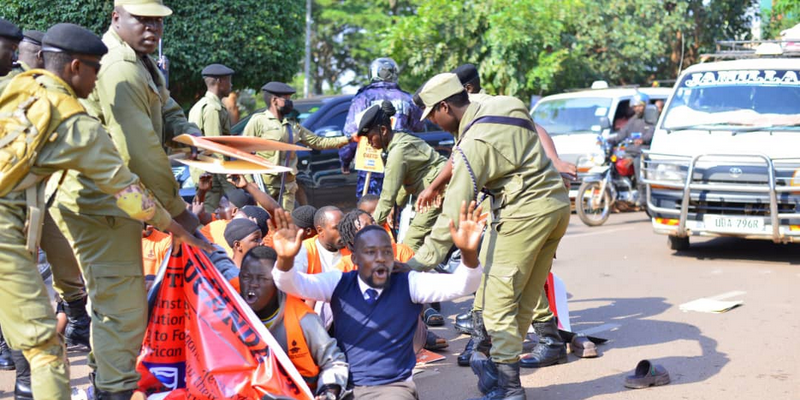
Twelve environmental activists who were arrested during protests against the East African Crude Oil Pipeline (EACOP) in August 2025 have decried delayed justice after their fourth bail application was rejected.
The presiding Senior Principal Grade One, Magistrate Winnie Nankya Jatiko, at Buganda Road Chief Magistrate’s Court, said the suspects’ case was in an advanced stage and therefore, there was no need to grant them bail despite the fact that they have spent nearly three months on remand.
The activists, most of whom are students from various universities in the country under their umbrella body, Students Against Eacop Uganda, an environmental pressure group, were arrested on August 1 after staging a peaceful protest near Stanbic Bank in Kampala, over what they described as the bank’s continued funding of the East African Crude Oil Pipeline (Eacop). They were first arraigned in court on charges of being a public nuisance and remanded to Luzira till September 5.
The suspects, who include Teopista Nakyambadde, Shammy Nalwadda, Dorothy Asio, Shafik Kalyango, Habibu Nalungu, Noah Kafiiti, Ismail Zziwa, Ivan Wamboga, Akram Katende, Baker Tamale, Keisha Ali and Mark Makoba, accused the bank of funding the ongoing construction of the 1,443km Eacop, claiming that the project is destructive to the environment.
They reappeared before the same court on August 18, and Ms Nankya denied them bail because some of them were perennial protestors who had repeatedly abused their bail terms.
She, on September 5, declined to hear their fresh bail application and adjourned the court session to October 1 after hearing evidence of three state witnesses.
Some of the state witnesses said they had seen some of the activists participating in more than one anti-Eacop protest.
Mr Kato Tumusiime, the lead lawyer for the activists, condemned the decision by the magistrate to rejects his clients’ bail application and described it as absurd and unfortunate.
“Failing to entertain the bail application prejudices the rights of the accused guaranteed by our Constitution, and the same is not only harsh but also illegal and unacceptable. It suggests that the activists have been found guilty before even hearing their case,” he said
He added, “This is unacceptable in our legal regime. We must fight for our judiciary to be independent and act in line with the law and not to please the people in power.”
The magistrate fixed November 6 when she will rule whether they have a case to answer.
Background
The activists have on several occasions protested in Kampala streets, including at Parliament, the French and Chinese Embassies, Stanbic and KCB Banks, over their substantial support for the Eacop project, which they say is harmful. This time, the bank announced its funding after key financiers withdrew.
However, the government and key stakeholders have dismissed the activists’ claims, defending their participation in the project, which is expected to transform the country’s economy once oil begins flowing.
The $5 billion (Shs18 trillion) EACOP project is a 1,443 km pipeline that will transport Uganda’s waxy crude oil from the oil fields in mid-western Uganda to Tanga port on the Indian Ocean in Tanzania.
The project is jointly owned by French oil giant, TotalEnergies (62 percent), the Uganda National Oil Company Limited (UNOC – 15 percent), China National Offshore Oil Corporation (CNOOC – 8 percent), and Tanzania’s Petroleum Development Corporation (TPDC – 15 percent) under EACOP Ltd.
Source: Monitor
Related posts:

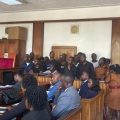 Breaking: Buganda Road Court grants bail to 15 stop EACOP activists after 30 days in prison.
Breaking: Buganda Road Court grants bail to 15 stop EACOP activists after 30 days in prison.
 The latest: Another group of anti-EACOP activists has been arrested for protesting Stanbic Bank’s financing of the EACOP Project.
The latest: Another group of anti-EACOP activists has been arrested for protesting Stanbic Bank’s financing of the EACOP Project.
 Breaking: 15 Anti-EACOP Activists have been charged with common nuisance and remanded to Luzira prison.
Breaking: 15 Anti-EACOP Activists have been charged with common nuisance and remanded to Luzira prison.
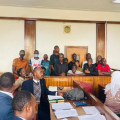 A bail application for the 15 EACOP activists failed to take off, and they were remanded back to Prison.
A bail application for the 15 EACOP activists failed to take off, and they were remanded back to Prison.

REC25 & EXPO Ends with a call on Uganda to balance conservation and livelihood

StopEACOP Coalition warns TotalEnergies and CNOOC investors of escalating ‘financial and reputational’ Risks

12 anti-Eacop activists decry delayed justice after spending 100 days on remand

‘They Stole Our Ancestors’: Ministry of Water, RDCs Accused of Land Grabbing and Grave Exhumation in Kanungu

The 4th African Forum on Business and Human Rights: The rapidly escalating investment in Africa is urgently eroding environmental conservation and disregarding the dignity, the land, and human rights of the African people.

Oil palm tree growing in Uganda: The National Oil Palm Project is threatening to evict hundreds of smallholder farmers to expand its operations.

The 4th African Forum on Business and Human Rights: The African continent is lagging, with only a few member states having adopted the National Action Plan (NAP) on Business and Human Rights.

StopEACOP Coalition warns TotalEnergies and CNOOC investors of escalating ‘financial and reputational’ Risks

Innovative Finance from Canada projects positive impact on local communities.
Over 5000 Indigenous Communities evicted in Kiryandongo District
Petition To Land Inquiry Commission Over Human Rights In Kiryandongo District
Invisible victims of Uganda Land Grabs
Resource Center
- REPARATORY AND CLIMATE JUSTICE MUST BE AT THE CORE OF COP30, SAY GLOBAL LEADERS AND MOVEMENTS
- LAND GRABS AT GUNPOINT REPORT IN KIRYANDONGO DISTRICT
- THOSE OIL LIARS! THEY DESTROYED MY BUSINESS!
- RESEARCH BRIEF -TOURISM POTENTIAL OF GREATER MASAKA -MARCH 2025
- The Mouila Declaration of the Informal Alliance against the Expansion of Industrial Monocultures
- FORCED LAND EVICTIONS IN UGANDA TRENDS RIGHTS OF DEFENDERS IMPACT AND CALL FOR ACTION
- 12 KEY DEMANDS FROM CSOS TO WORLD LEADERS AT THE OPENING OF COP16 IN SAUDI ARABIA
- PRESENDIANTIAL DIRECTIVE BANNING ALL LAND EVICTIONS IN UGANDA
Legal Framework
READ BY CATEGORY
Newsletter
Trending
-
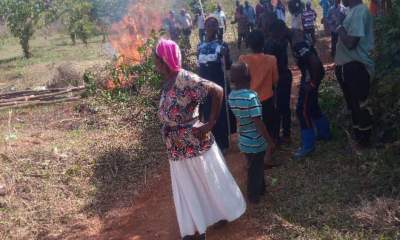
 MEDIA FOR CHANGE NETWORK2 weeks ago
MEDIA FOR CHANGE NETWORK2 weeks agoOil palm tree growing in Uganda: The National Oil Palm Project is threatening to evict hundreds of smallholder farmers to expand its operations.
-
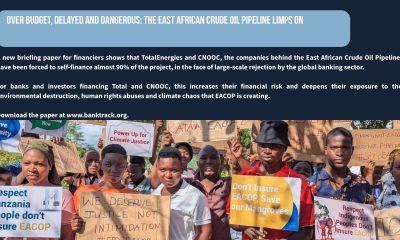
 MEDIA FOR CHANGE NETWORK4 days ago
MEDIA FOR CHANGE NETWORK4 days agoStopEACOP Coalition warns TotalEnergies and CNOOC investors of escalating ‘financial and reputational’ Risks
-
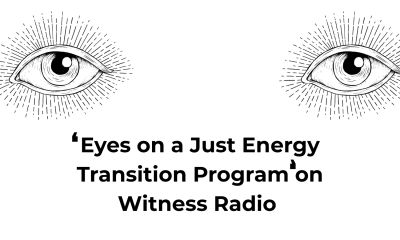
 MEDIA FOR CHANGE NETWORK2 weeks ago
MEDIA FOR CHANGE NETWORK2 weeks agoNew! The Eyes on a Just Energy Transition in Africa Program is now live on Witness Radio.
-

 MEDIA FOR CHANGE NETWORK1 week ago
MEDIA FOR CHANGE NETWORK1 week agoKnow Your Land rights and environmental protection laws: a case of a refreshed radio program transferring legal knowledge to local and indigenous communities to protect their land and the environment at Witness Radio.
-
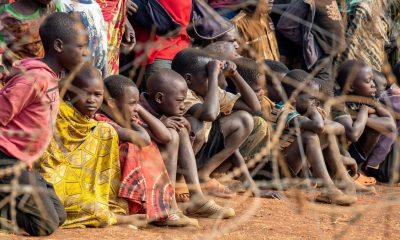
 NGO WORK6 days ago
NGO WORK6 days agoFailed US-Brokered “Peace” Deal Was Never About Peace in DRC
-
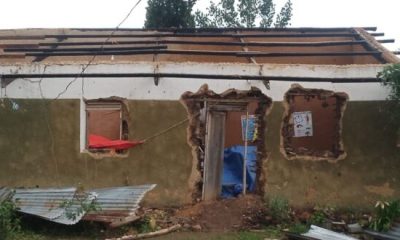
 MEDIA FOR CHANGE NETWORK2 weeks ago
MEDIA FOR CHANGE NETWORK2 weeks agoRDCs, Local Leaders Accused of Grabbing 70-Acre Ancestral Land
-
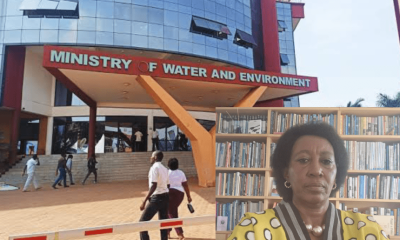
 MEDIA FOR CHANGE NETWORK5 days ago
MEDIA FOR CHANGE NETWORK5 days ago‘They Stole Our Ancestors’: Ministry of Water, RDCs Accused of Land Grabbing and Grave Exhumation in Kanungu
-
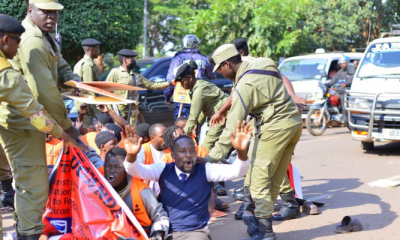
 MEDIA FOR CHANGE NETWORK5 days ago
MEDIA FOR CHANGE NETWORK5 days ago12 anti-Eacop activists decry delayed justice after spending 100 days on remand

